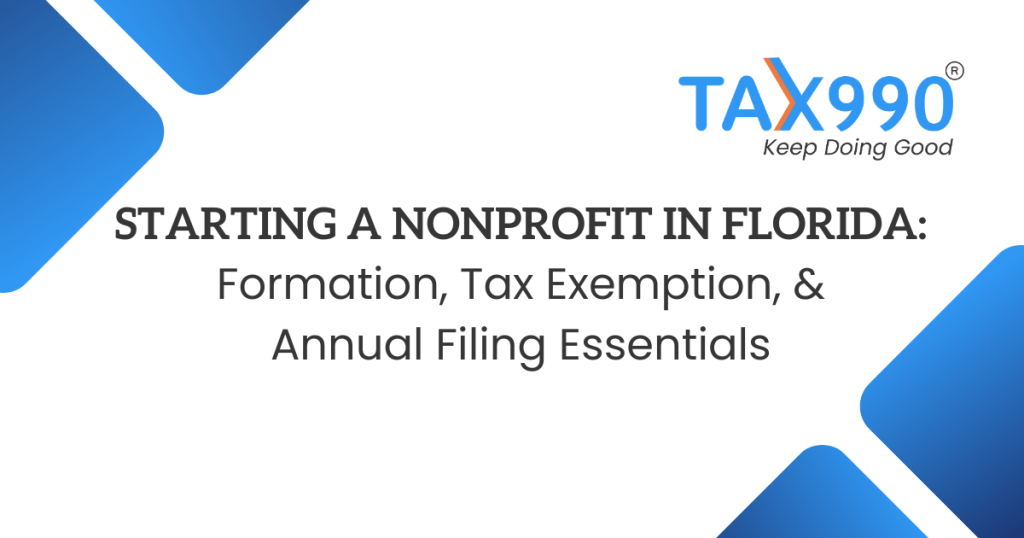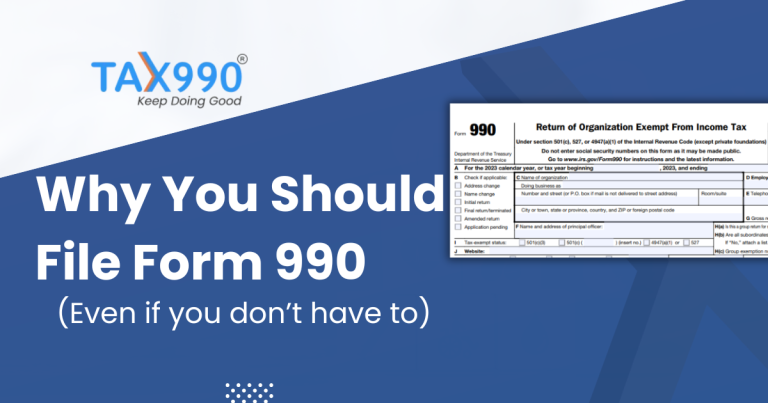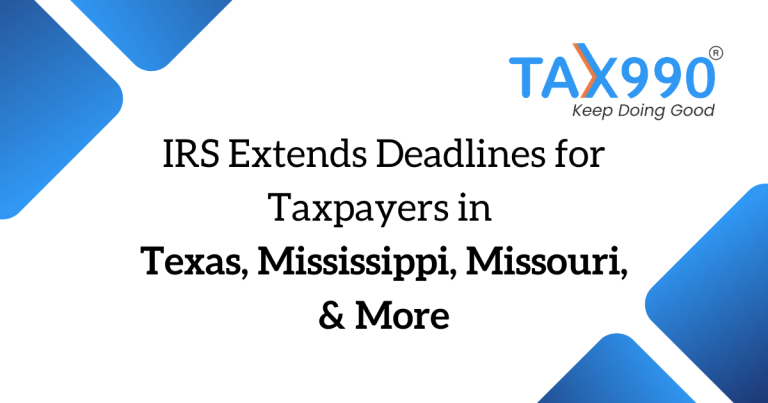Estimated reading time: 14 minute(s)

Starting a nonprofit organization in Florida involves more than just a significant mission. It requires careful planning, legal structuring, and compliance with both state and federal regulations. Whether your goal is to serve your community, support a cause, or advocate for change, understanding the formation process is key to building a successful and sustainable nonprofit.
In our last blog, we explored nonprofit compliance requirements in Illinois. In this post, we shift our focus to what it takes to successfully start and sustain a nonprofit, taking a closer look at the state of Florida.
How to form a nonprofit in the State of Florida?
Starting a nonprofit organization in Illinois requires careful attention to both state and federal requirements. This guide walks you through the essential steps to establish and maintain a nonprofit in the state of Florida – from incorporation to tax exemption and annual compliance.
1. Register Your Nonprofit with the State of Florida
Your first official step is to register your nonprofit by filing Articles of Incorporation with the Florida Department of State – Division of Corporations. This establishes your organization as a legal entity in the state.
If you’re filing by mail, make sure to include:
- The original, signed Articles of Incorporation
- One copy of the Articles
- A state-prescribed cover letter
Mailing Address:
Florida Department of State – Division of Corporations
Corporate Filings
P.O. Box 6327
Tallahassee, FL 32314
2. Obtain an EIN and State Tax ID
Once incorporated, your organization must apply for an Employer Identification Number (EIN) from the IRS. This serves as your federal tax ID, used for opening bank accounts, hiring employees, and filing taxes. You can apply online via the IRS website or submit Form SS-4 by mail or fax.
You may also need a Florida state tax identification number, depending on your business activities with the Florida Department of Revenue.
3. Apply for Federal and State Tax-Exempt Status
After securing your EIN, your next major step is to apply for federal tax-exempt status with the IRS. Most nonprofits file Form 1023 or the streamlined Form 1023-EZ (if eligible) to be recognized as a 501(c)(3) organization. Once granted, this status exempts your organization from federal income taxes and allows donors to make tax-deductible contributions.
In Florida, no separate application is required to obtain state income tax exemption once federal status is approved.
4. Register for Charitable Solicitation in Florida
Before engaging in any fundraising, your nonprofit must register with the Florida Department of Agriculture and Consumer Services (FDACS). This registration is mandatory for all organizations soliciting donations in the state.
File the FDACS-10100 (Solicitation of Contributions Registration Application) online or by mail to remain compliant.
5. Secure Applicable Licenses and Permits
Nonprofits, like any business, must comply with local regulations. Depending on your operations, you may need various local, state, or federal licenses and permits.
Florida often requires a business or occupational license, commonly referred to as a local business tax receipt, issued by your county government. Visit your county’s tax collector’s office or use the Florida Tax Collector Directory to check local requirements.
You can also explore the Small Business Administration’s License & Permit Tool to identify any federal or state requirements that apply to your nonprofit.
6. Meet Annual Tax Filing and Compliance Requirements
Maintaining your nonprofit’s good standing involves timely filings and renewals with both the IRS and Florida state agencies.
Federal tax filing requirement:
Every year, your organization must file one of the Form 990 series Form 990, 990-EZ, 990-N, or 990-PF, depending on your financial activity. This filing is due on the 15th day of the 5th month after the end of your fiscal year. Failure to file for three consecutive years may result in automatic revocation of your federal tax-exempt status.
Florida state filing requirements:
- Florida Department of Revenue: File Form F-1120 or F-1120A annually by June 1. No filing fee is required.
- Florida Department of State – Division of Corporations: Submit an Annual Report between January 1 and May 1. A $61.25 fee applies.
- Florida Department of Agriculture and Consumer Services (FDACS): Renew your solicitation registration annually by your original registration date. There is no fee for this renewal.
Conclusion
Launching a nonprofit in Florida is both rewarding and demanding. While the administrative steps may seem complex, they lay the groundwork for a legally sound and effective organization. From filing your Articles of Incorporation to renewing your charitable solicitation license each year, each step ensures your nonprofit can operate transparently, build trust with donors, and make a lasting impact.
By following these structured steps and staying on top of your annual obligations, you’re not just starting a nonprofit; you’re creating a sustainable means for change in your community and beyond.
Up next, we’ll explore what it takes to start and operate a compliant nonprofit in California from initial registration and tax exemption to ongoing reporting requirements.
Follow along as we continue our journey through the nonprofit landscape, state by state.




Leave a Comment